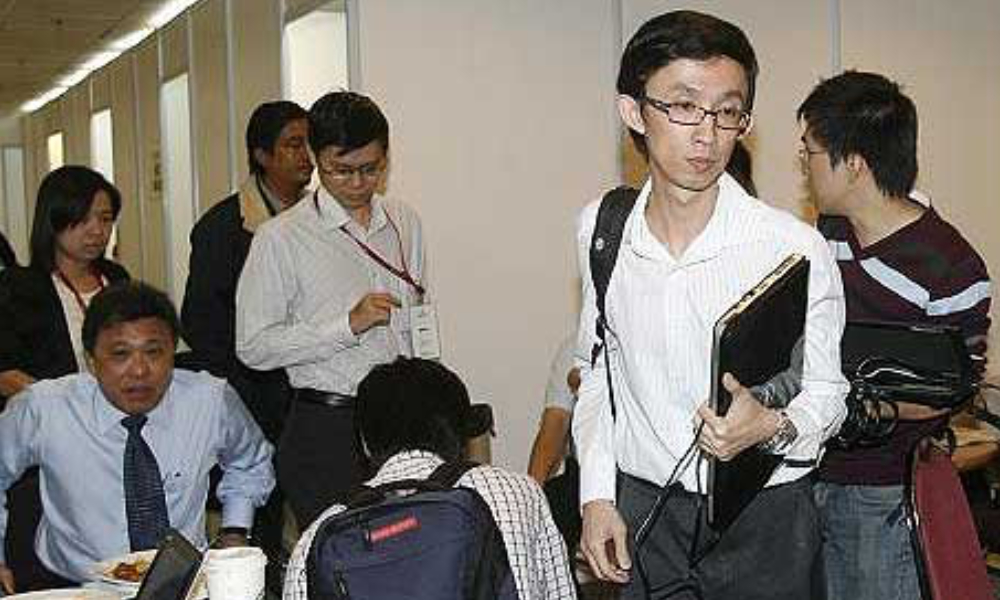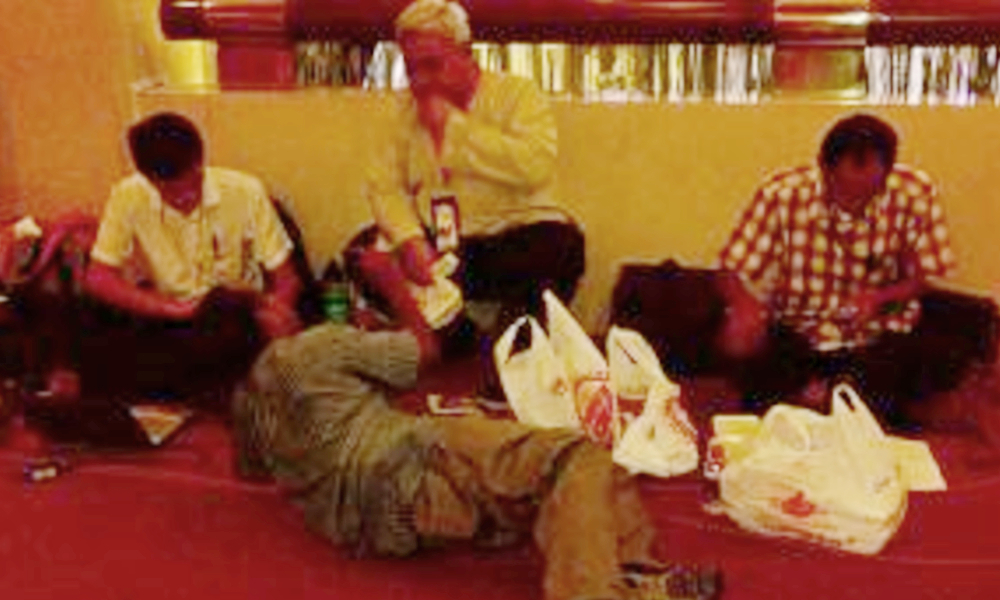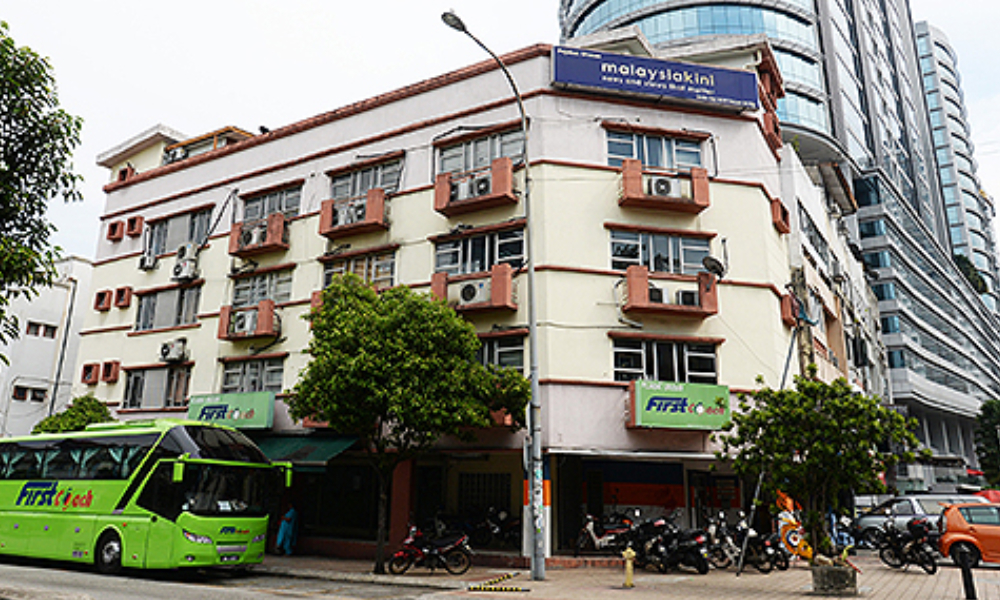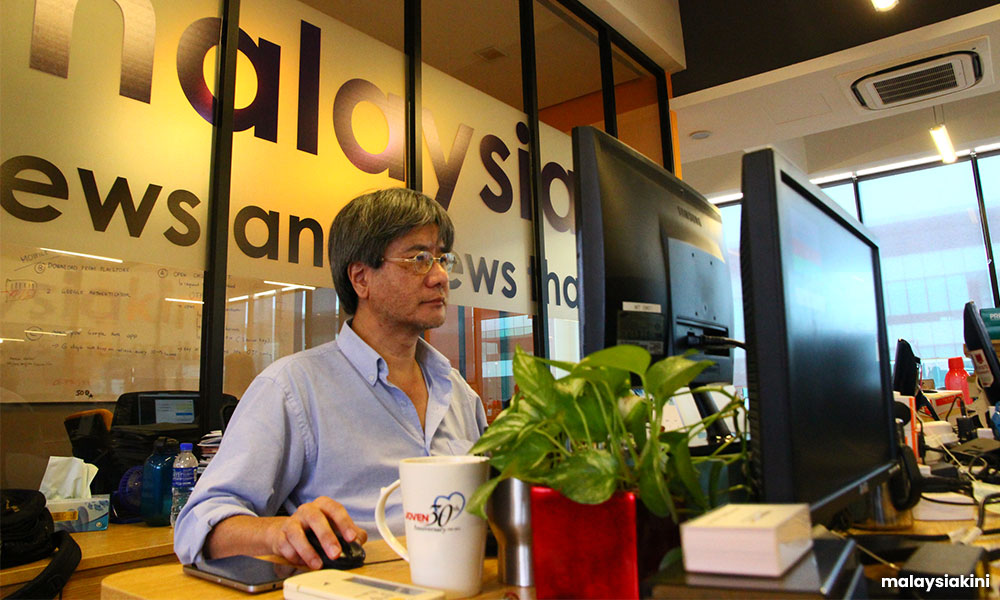One evening in 2005, at a McDonald’s restaurant in Bangsar, Kuala Lumpur, I had an interview with Yong Kai Ping, the founding editor of Malaysiakini’s Chinese edition. That day marked the beginning of my journey as one of the three members of the founding editorial team.
On my first day at work, I arrived at Malaysiakini’s office in Bangsar. Editor-in-chief Steven Gan opened the door for me. At the time, I had no idea that he would be my boss - I had never met him before. He casually pointed to an empty seat and said, “You can sit here.”
Unlike traditional editors-in-chief, Steven had no private office and worked alongside reporters and editors. He didn’t rely on a secretary to handle his tasks and often answered the office phone himself. Rain or shine, he consistently uploaded articles every day at 6 am. His unwavering principles became the cornerstone of Malaysiakini’s editorial ethos, upheld to this day.
The salary offered by Malaysiakini was only RM50 more than at my previous job. However, the role brought me far greater rewards - a profound sense of mission and fulfilment in pursuing press freedom.
Surprising choices and early challenges
My decision to join Malaysiakini took my family by surprise. My father even warned me, “Don’t become another Tian Chua.” Back then, I was tall, thin, and bespectacled, and bore a striking resemblance to Tian Chua, a prominent figure in the Reformasi movement known for standing in front of water cannons.

Malaysiakini was widely regarded as “alternative media”, often associated with activists and a handful of idealistic advocates for press freedom. Few journalism graduates would consider working there.
Before the 2008 political tsunami, Malaysiakini reporters were persona non grata to the BN government. No government departments or BN politicians would send us press releases or media invites. We relied heavily on the goodwill of fellow journalists who shared these resources with us. For this, I remain deeply grateful to those who supported us during Malaysiakini’s early days. Without their help, we wouldn’t be where we are today.
On multiple occasions, I was asked to leave press conferences. One notable incident occurred during a briefing by a senior officer at Bukit Aman. The officer, one of the alleged “Four Heavenly Kings” of the police force, began by asking, “Who here is from Malaysiakini?” I raised my hand, and he promptly instructed, “Please leave.”
Another time, during an Umno general assembly, I was writing an article in the media room when an official came over and asked us to pack up and leave immediately. Undeterred, my team relocated to the corridor to continue our work, even as auxiliary police repeatedly tried to chase us away.

Despite these obstacles, we persevered. Our reporting was always well-prepared, and our incisive questions and rapid coverage became our signature style. Ministers and officials often dreaded facing Malaysiakini reporters, as we consistently tackled topics mainstream media avoided, such as the Internal Security Act, protests, and Anwar Ibrahim.
Bridging language divide, challenging media monopoly
The Malaysiakini Chinese edition was born amid public outcry against MCA’s acquisition of Nanyang Press, which eventually merged with other publications under Media Chinese International, a leading Chinese language media group.
During the anti-acquisition and anti-monopoly movements, Malaysiakini and the now-defunct Merdeka Review played vital roles in providing alternative narratives.

Beyond breaking media monopolies, Malaysiakini aimed to bridge the language divide. Before the rise of social media, readers of different languages existed in isolated bubbles, often unaware of the news in other communities.
For instance, prior to the 2008 general election, then-MCA president Ong Ka Ting and the education minister at the time Hishammuddin Hussein, held a press conference to announce plans for building and relocating Chinese primary schools. The event was attended only by five Chinese newspapers, two Chinese TV stations, and MCA’s The Star.
However, as an uninvited guest from Malaysiakini, I managed to gain entry after much negotiation and translated the announcement into multiple languages, breaking the tradition of selective communication.
This practice of tailoring messages for specific audiences wasn’t exclusive to a single party. Over time, Malaysiakini’s consistent exposure of such practices discouraged politicians from repeating them.
Upholding Independence and looking ahead
Malaysiakini always stood firm against attempts to interfere with press freedom. Any efforts to obstruct our reporting or demand retractions only turned into stories themselves.

The 2008 political tsunami marked a turning point, as online media finally gained government recognition. For the first time, the Information Ministry issued media passes to online journalists, granting us access to government departments. While this was a step forward, systemic reforms remained lacking.
Nearly two decades have passed since the Chinese edition’s inception. Although the media landscape has changed for the better, traditional journalism faces unprecedented challenges. In the age of influencers, news painstakingly gathered by professional reporters is often repurposed by content creators for their own gain. If traditional journalists disappear and news becomes purely reactive, the quality and reliability of information will undoubtedly suffer.
As Malaysiakini celebrates its 25th anniversary, we are evolving from chasing breaking news to focusing on in-depth reporting, data journalism, and interactive content. However, one thing remains constant: our commitment to uncovering the truth, holding power to account, and amplifying the voices of the marginalised.
Steven often emphasised that “financial independence is the cornerstone of editorial independence” and Malaysiakini’s survival in the past 25 years has been made possible by the unwavering support of our readers.
As we look ahead to the next 25 years, we hope to continue this journey together, striving for the unfinished dream of press freedom in Malaysia.
ALSO READ:
Beyond headlines: Malaysiakini's commitment to accessibility
From journalist to editor - Malaysiakini is my 'ride or die'
Balancing business innovation, journalistic freedom for Mkini
Subscribe to Malaysiakini today and save 25 percent to support the free press. You can gift our subscription to a friend, too. Alternatively, send your donation here.
Ng Ling Fong is Malaysiakini managing editor.

